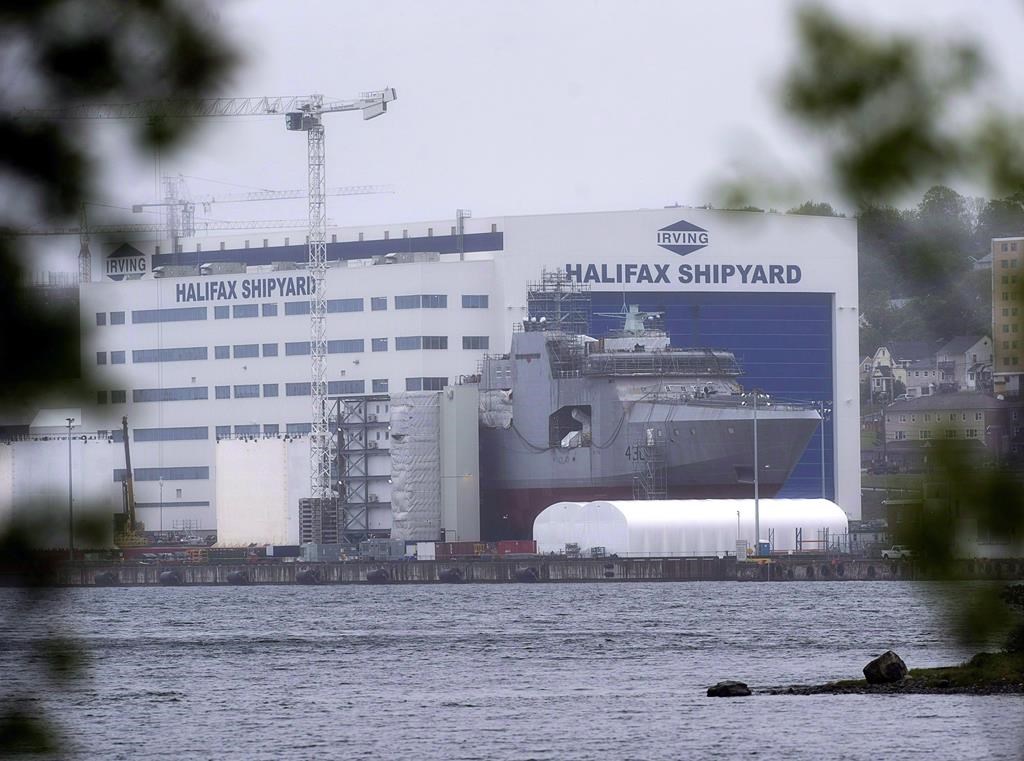Irving Shipbuilding received a verbal warning from Nova Scotia’s Labour Department after the company failed to inform workers it had brought in a specialized out-of-province worker exempt from COVID-19 regulations, an inspection by the department found.

A copy of the report obtained by Global News also ruled that roughly 90 workers at the Irving Halifax Shipyard had grounds to walk off the job last month over fears for their health and safety.
“It was determined that the employees did have grounds for a reasonable belief there was a hazard to their health or safety,” the reported reads.
Labour inspectors were called to the Irving Halifax Shipyard on Oct. 27 after workers at the Irving Halifax Shipyard refused to work in protest over a Quebec contractor being brought in to work at the site the week before.
The contractor was granted an exemption from the province’s 14-day self-isolation period — a procedure brought in to limit the spread of COVID-19 — as they were deemed an essential worker.
But the report makes clear that Irving Shipbuilding “failed to notify persons regularly employed at the workplace” of how many workers from outside the Atlantic bubble had arrived, the location where they would be working or the other precautions that were put in place to allow them to be present without self-isolating.

Get weekly health news
Irving Shipbuilding actually went beyond the minimum requirements specified by the province.
They placed “additional restrictions” on the exempted worker, such as not allowing them to eat in any area regularly used by other workers and making it mandatory for the worker to wear gloves, according to the report.

Irving Shipbuilding also required the exempted worker to use the washrooms at their hotel room instead of at the shipyard. However, that violates occupational health and safety rules and was corrected after the inspection.
The province’s inspectors issued a verbal order to Irving Shipbuilding that it was to “ensure information” was communicated to all employees that a worker from outside the Atlantic bubble was present at the workplace.
“However, the employer immediately complied with the verbal order, therefore a written order was not issued,” the report reads.
Employees returned to work soon afterwards.
Irving Shipbuilding did not respond to multiple requests for comment.
When asked for comment, the Nova Scotia Department of Labour initially made no mention of its inspector’s findings, including that employees at the shipyard had a reasonable fear for their health and safety.
Instead, the department stressed that it had worked “with those involved, resulting in an end to the work refusal.”
The province did not immediately respond when pressed for answers on whether it would’ve disclosed the report’s findings if Global News had not secured its own copy of the document.

Dr. Robert Strang, Nova Scotia’s chief medical officer of health, took Irving Shipbuilding to task over its actions in a public press conference on Oct. 28.
Strang said at the time that it’s important for businesses to communicate with workers if they are bringing specialized isolation-exempt employees into the workplace.
“Clearly, our expectation as part of this is that a business is communicating within their worksite. That’s their responsibility,” Strang said.
“That has been made very clear with the followup of the inspection (Tuesday) to Irving.”










Comments
Want to discuss? Please read our Commenting Policy first.